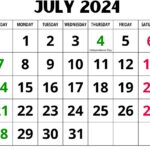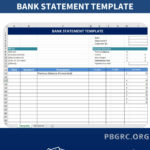July Calendar 2024: Similar to a captain navigating a ship, you’re mapping out your journey for July 2024. You’re not lost at sea; we’ve got the perfect template to guide you. Our July 2024 calendar printable is here to help navigate the waves of your busy life. You’ll find them available in various formats including …
Lunar July 2024 Calendar Moon Phases with Dates
Curious about the moon’s phases in July 2024? You’ll find all the dates you need in this July 2024 Calendar Moon Phases. Know the upcoming month and track each phase effortlessly. Fall into the celestial world and plan your activities accordingly with this detailed lunar July 2024 calendar. Stay informed, stay connected to the cosmos, …
Cute July 2024 Calendar Floral Designs Wallpaper Free
The Cute July 2024 Calendar Floral Designs Wallpaper is the perfect way to add a touch of beauty and organization to your daily life. This wall calendar features stunning floral patterns that are sure to brighten up any room. With its cute and elegant look, this cute 2024 July calendar is perfect for anyone who …
Free Bank Statement Templates [Excel, Word, PDF] Printable Generator
You can easily access free printable bank statement templates suitable for Excel, Word, or PDF. These highly customizable printable generator templates allow you to track your income, expenses, deposits, and withdrawals effectively. Whether for personal or business use, bank statement templates are your tool for detailed financial record-keeping. Available online, you can download printable bank …
Fathers Day 2024 Wishes Images, Quotes, Messages Greetings
Fathers Day 2024 Wishes: Father’s Day is a special occasion dedicated to our fathers, in which we honor their wonderful role and remember with gratitude and appreciation all the sacrifices they make. One of the most beautiful ways to celebrate Father’s Day is by sharing heartwarming Fathers Day Wishes Images, Quotes, Messages Greetings that capture …
2024 Amezing Fathers Day Crafts for Toddlers, Kindergarten, Students, Preschoolers
Happy Fathers Day Crafts: Father’s Day is an occasion dedicated to the very important and unique fathers in our lives. This special day is dedicated to the achievements of our elders and being in touch with them. It’s the perfect time to show our love and appreciation for all the support, guidance, and love they …
70+ Best Happy Fathers Day Quotes and Sayings 2024
Happy Fathers Day Quotes 2024: Father’s Day is a special occasion dedicated to honoring fathers and celebrating the profound impact they have on their children’s lives. It is a day to express gratitude, love, and appreciation for all the sacrifices, guidance, and unconditional support fathers provide. One way to convey these heartfelt emotions is through …
Sadie Sink Net Worth, Age, Boyfriend, Family & Biography [Updated 2024]
Sadie Sink, worth $1.5 million, is a rising Hollywood star, known for her talent in popular series and films. Sadie Sink Wiki/BiographySadie Sink Net WorthSadie Sink Family, Boyfriend & RelationshipsSadie Sink Physical AppearanceSadie Sink Career GrowthSadie Sink Awards & nominations detailsSadie Sink Net Worth SummarySadie Sink Net Worth GrowthSadie Sink Hobbies, Likes & Dislikes, Facts …
Fathers Day Images, Pictures, Photos, and Wallpapers 2024
Fathers Day Images 2024: Father’s Day is a special occasion celebrated worldwide to honor and appreciate fathers and father figures. One of the ways to commemorate this day is by sharing Happy Father’s Day Images that capture the essence of the paternal bond and the significance of fatherhood. Fathers Day Pictures come in various forms, …









